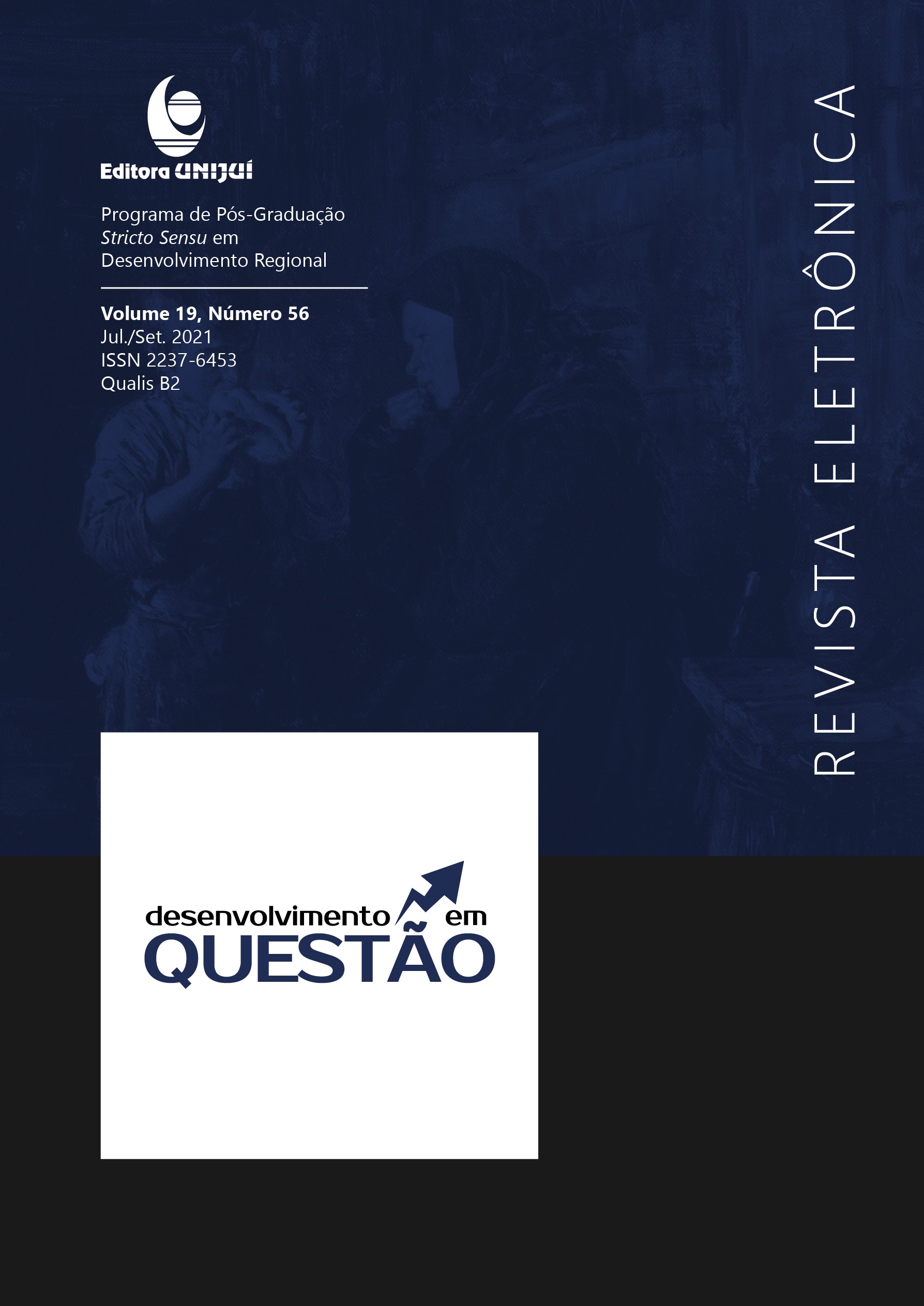A Teoria Institucional e sua Aplicação na Perspectiva de Sistemas de Informações
INSTITUTIONAL THEORY AND ITS APPLICATION IN THE INFORMATION SYSTEMS PERSPECTIVE
DOI:
https://doi.org/10.21527/2237-6453.2021.56.11758Palavras-chave:
Teoria Institucional. Sistemas de Informação. Bibliométrico. Acoplamento Bibliográfico.Resumo
A Teoria Institucional apresenta importantes contribuições para os estudos organizacionais e para a investigação das influências que moldam as estruturas, esquemas, regras, normas e comportamento dos atores. Na área de Sistemas de Informações (SI), é crescente o interesse a aplicação da Teoria Institucional para examinar fenômenos como inovação, desenvolvimento, implementação, adoção de Sistemas de Informações (MIGNERAT; RIVARD, 2009). Esta pesquisa apresenta um panorama da interface entre a Teoria Institucional e a área de Sistemas de Informação, por meio de uma pesquisa bibliométrica realizada na base de dados Web of Science. Foram encontradas 128 publicações, e o procedimento de acoplamento bibliográfico resultou em 5 clusters. Também foram destacados os elementos teóricos e metodológicos das 20 publicações com o maior número de citações, de forma a traçar a perspectiva de análise adotada pelos estudiosos de SI ao utilizarem a Teoria Institucional. Os resultados revelam que a Teoria Institucional apresenta inúmeras aplicabilidades nos estudos de SI e, também, são apontados caminhos de pesquisa consolidados, bem como sugestões de aplicações da Teoria Institucional que podem ser explorados pelos pesquisadores de SI.
Downloads
Publicado
Como Citar
Edição
Seção
Licença
Ao publicar na Revista Desenvolvimento em Questão, os autores concordam com os seguintes termos:
Os trabalhos seguem a licença Creative Commons Atribuição 4.0 Internacional (CC BY 4.0), que permite:
Compartilhar — copiar e redistribuir o material em qualquer meio ou formato;
Adaptar — remixar, transformar e criar a partir do material para qualquer fim, inclusive comercial.
Essas permissões são irrevogáveis, desde que respeitados os seguintes termos:
Atribuição — Atribuição — os autores devem ser devidamente creditados, com link para a licença e indicação de eventuais alterações realizadas.
Sem restrições adicionais — não podem ser aplicadas condições legais ou tecnológicas que restrinjam o uso permitido pela licença.
Avisos:
A licença não se aplica a elementos em domínio público ou cobertos por exceções legais.
A licença não garante todos os direitos necessários para usos específicos (ex.: direitos de imagem, privacidade ou morais).
A revista não se responsabiliza pelas opiniões expressas nos artigos, que são de exclusiva responsabilidade dos autores. O Editor, com o apoio do Comitê Editorial, reserva-se o direito de sugerir ou solicitar modificações quando necessário.
Somente serão aceitos artigos científicos originais, com resultados de pesquisas de interesse que não tenham sido publicados nem submetidos simultaneamente a outro periódico com o mesmo objetivo.
A menção a marcas comerciais ou produtos específicos destina-se apenas à identificação, sem qualquer vínculo promocional por parte dos autores ou da revista.
Contrato de Licença (para artigos publicados a partir de 2025): Os autores mantêm os direitos autorais sobre seu artigo, e concedem a Revista Desenvolvimento em Questão o direito de primeira publicação.











